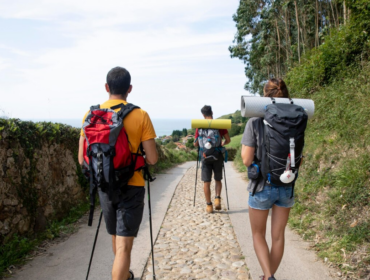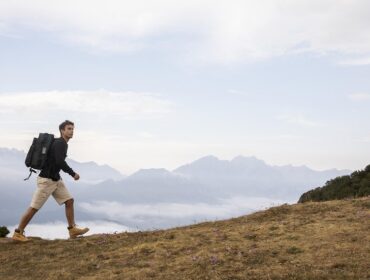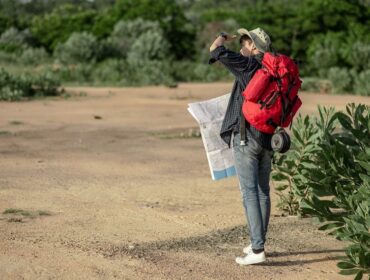Lightweight backpacking gear is essential for any outdoor enthusiast aiming to traverse trails without being weighed down. As we venture into the wild, the right equipment can make all the difference in our experience. Whether you are a seasoned hiker or just starting out, understanding what constitutes lightweight gear can help you choose products that enhance your journey while keeping your load light.
Introduction
The philosophy behind lightweight backpacking is simple: carry less, enjoy more. Generally, lightweight backpacking means keeping your base weight (everything except food, water, and fuel) under 20 pounds. This approach allows you to cover more ground with less fatigue and reduces the risk of injury. The key is selecting multi-purpose items and eliminating unnecessary gear without compromising safety and comfort.
What is Considered Lightweight Backpacking?
Lightweight backpacking generally refers to a philosophy of minimizing pack weight to maximize mobility and comfort on the trail. Typically, this means keeping your total gear weight—everything you carry, including food, water, and equipment—below 20 pounds for a multi-day trip. This approach encourages hikers to prioritize essentials, ensuring every item serves a purpose. The benefits of this style are clear: easier navigation through diverse terrains, reduced fatigue, and an overall more enjoyable outdoor experience.
To embark on a successful lightweight backpacking trip, you need to consider more than just the weight of your gear. Thoughtful planning, packing only what you need, and choosing high-quality, versatile items are key to maintaining that balance. This brings us to the core of our discussion: the essential lightweight backpacking gear that every adventurer should consider.
Essential Lightweight Backpacking Gear
When it comes to lightweight backpacking gear, the goal is to equip yourself with items that are not only light but also functional and durable. Here’s a breakdown of the key components you’ll need for a successful outing.
Backpack
First and foremost, a reliable backpack is crucial. A 45L Backpack is often the perfect size for lightweight backpackers, striking a balance between capacity and weight. Look for one with adjustable straps and plenty of compartments for organization. An efficient pack allows you to distribute weight properly, enhancing comfort during long treks.
Tent and Tarp
Next up is shelter. Depending on your group size, you might opt for a 2 Person Backpacking Tent for couples or small groups or a 3 Person Lightweight Backpacking Tent for larger parties. These tents are designed to provide ample protection from the elements while being easy to set up and take down. For even lighter options, consider a bivy or a tarp, both of which can offer minimalist protection when you’re braving the wild.
Moreover, an adjustable pole for tarps can provide stability for your tarp shelter,while also being versatile enough for general hiking use.
Sleeping Pad
Comfort on the ground is another essential consideration. An ultralight sleeping pad can drastically improve your sleep quality by providing insulation and cushioning from the hard ground. Pair it with a helium sleeping bag, which is designed for warmth without the bulk. These sleeping systems allow you to recharge after a day of hiking, preparing you for the adventures ahead.
Cooking Equipment
Cooking outdoors requires thoughtful gear choices as well. A crux lite stove is an excellent choice for lightweight backpackers, as it is compact and efficient for meal preparation. Coupled with the alpine 2 pot set, you’ll have everything you need to whip up hearty meals without adding unnecessary weight to your pack. Remember a kitchen set for utensils and a water hammock for easy water storage, ensuring you stay hydrated and well-fed.
When it comes to sitting comfortably around the campfire or taking breaks on the trail, an ultralight backpacking chair is a luxury that pays off. Its portability and lightweight design allow you to enjoy a comfortable seat without the bulk of traditional camping chairs.
In the realm of hydration, consider an ultralight UV purifier to ensure your water is safe to drink. This device is easy to pack and allows you to purify water from natural sources, saving you the hassle of carrying large amounts of water.
Clothing
Clothing is another essential aspect of lightweight backpacking gear. Invest in 1.5mm lightweight socks to keep your feet comfortable and dry during long hikes. For women, the lightweight lana tight is an excellent choice for warmth without bulk. At the same time, men can benefit from a lightweight core stretch midlayer to to provide insulation and mobility in varying weather conditions.
Things You Probably Don’t Need to Bring on a Backpacking Trip

While the right gear enhances your experience, certain items may seem necessary but can actually weigh you down. Avoid bringing heavy tools or equipment that serve limited purposes, such as large cooking sets or multiple blankets.
For example, you might be tempted to carry a full-sized cooler or a bulky tent that offers more space but at a significant weight cost. Instead, embrace minimalist options. While comfort is important, every ounce counts in lightweight backpacking. Similarly, excessive clothing or accessories should be minimized. Aim for versatile clothing that can serve multiple purposes instead of packing numerous individual items.
Consider whether you truly need luxury items, such as large books or elaborate entertainment devices. Instead, find enjoyment in the surroundings—nature is your best companion. Prioritize the essentials, and you’ll find that your overall experience is enhanced by the freedom that comes from traveling light.
Many beginners overpack out of fear or uncertainty. While safety should never be compromised, certain items can usually be left behind. Multiple changes of clothes, heavy camp shoes, and full-size toiletries often add unnecessary weight. Instead of bringing a different outfit for each day, focus on versatile layers that can be worn in multiple ways.
Electronics beyond a phone and minimal battery backup are usually unnecessary. While they might provide entertainment, they add weight and detract from the wilderness experience. Instead, embrace the simplicity that lightweight backpacking gear affords you. The goal is to be comfortable and safe while maintaining a lightweight approach to backpacking.
Conclusion
Start with the essentials: a reliable shelter system, an appropriate sleep setup, and an efficient carrying solution. Add carefully chosen clothing layers and cooking equipment, then thoughtfully evaluate each additional item. With practice, you’ll develop a lightweight kit that enhances rather than hinders your outdoor adventures.





